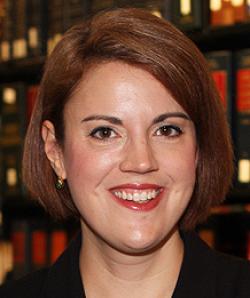Course Info
This course provides students with both a broad survey of the law of civil remedies and a chance to focus individual research on a particular area of interest within that broad survey. The law of remedies focuses on what happens after the merit of a case has been decided; how does the court provide redress to the successful litigant? This seminar examines concepts of corrective justice, the institutional incentives created by different types of remedies, and related policy issues. Topics include "private" remedies (tort, contract, etc.), "public remedies," such as civil rights actions in which plaintiffs seek broad injunctive relief, and specialized areas of public-policy concern such as punitive damages and remedies in class-action suits.
Prof. Robertson

Prof. Cassandra Burke Robertson is John Deaver Drinko - BakerHostetler Professor of Law and Director of the School of Law Center for Professional Ethics, who regularly teaches Civil Procedure, Professional Responsibility and Secured Transactions. This semester, she teaches the Barristers (320) section of Civil Procedure.
Syllabus
The syllabus for your course is available on Canvas.
Textbook
Examples and Explanations for Remedies by
ISBN: 9798889066330Publication Date: 2023-11-10Available via Aspen Learning Library.
Study Aids
Introduction
These study aids are available online. Please click the hyperlinked title to view them. For instructions on how to use the specific platforms, including troubleshooting, please view Andy Dorchak's Study Aids Research Guide.
Remedies in a Nutshell by
ISBN: 9781647082208Publication Date: 2021-03-29Available via West Academic Study Aids.Gilbert Law Summary on Remedies by
ISBN: 9781636596556Publication Date: 2022-12-09Available via West Academic Study Aids.Principles of Remedies Law by
ISBN: 9781647084080Publication Date: 2022-02-24Available via West Academic Study Aids.
CALI
Computer-Aided Legal Instruction (CALI) requires an authorization code to use. If you do not have a CALI account, please contact Kieran Layton or the reference desk for assistance.
Audio Guides
Audio Guides
Law School Legends Audio on Remedies by
Publication Date: 2005Available via West Academic Study Aids.
